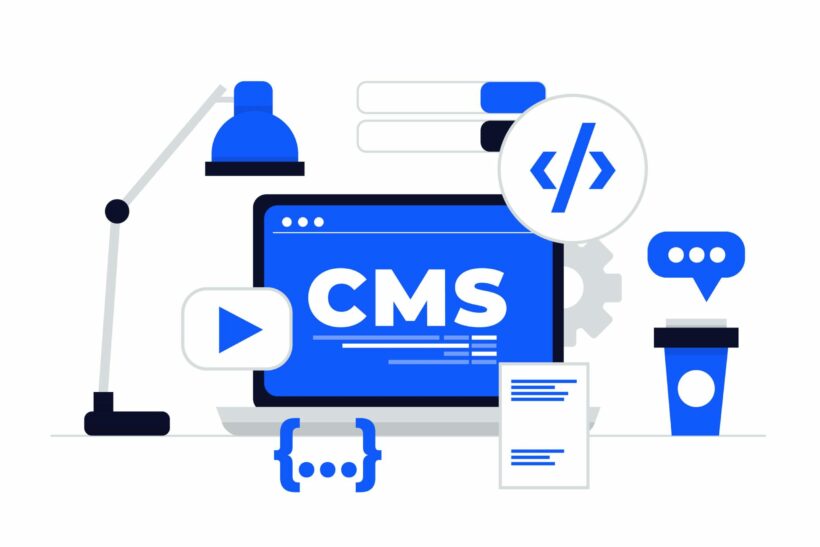Unlocking Success with Powerful WordPress Website Guide, Tools and Review
Discover the ultimate compilation of top-notch tools curated by MyQuests for constructing and managing WordPress websites. While not all items are obligatory, we highly recommend perusing the suggestions and cross-referencing them with similar lists and your own firsthand encounters. Rest assured, our list exclusively features tools and services that we have extensively utilized and can wholeheartedly vouch for their effectiveness. With unwavering confidence, we present this collection as a result of our firsthand success stories.
Top 10 Hosting Providers: A Comprehensive Review
When it comes to hosting your website, choosing the right provider is crucial for ensuring reliability, performance, and overall success. With numerous hosting options available, we’ve compiled a list of the top 10 hosting providers known for their exceptional services and features. Let’s explore each provider in detail and understand why they are considered among the best in the industry.
Bluehost:
Bluehost is a renowned hosting provider known for its exceptional customer support and user-friendly interface. They offer a wide range of hosting plans suitable for both beginners and experienced users. With reliable uptime, fast loading speeds, and robust security features, Bluehost is an excellent choice for WordPress websites.
SiteGround:
SiteGround is highly regarded for its exceptional performance, cutting-edge technology, and proactive security measures. Their hosting plans come with advanced caching techniques, SSD storage, and a free CDN. SiteGround’s excellent customer support and easy-to-use interface make it an ideal choice for businesses of all sizes.
HostGator:
HostGator is a popular hosting provider offering affordable hosting plans with unlimited bandwidth and storage. They provide a user-friendly control panel, one-click installations, and a 99.9% uptime guarantee. HostGator’s robust infrastructure and scalable solutions make it an excellent choice for growing businesses.
A2 Hosting:
A2 Hosting stands out for its blazing-fast page loading speeds and reliable performance. They offer a variety of hosting options, including shared, VPS, and dedicated hosting. With their Turbo Servers and SSD storage, A2 Hosting ensures optimal website performance, making it an excellent choice for businesses focused on speed.
DreamHost:
DreamHost is a trusted hosting provider known for its commitment to privacy and transparency. They offer feature-rich hosting plans with unlimited bandwidth, SSD storage, and a free SSL certificate. With their powerful control panel and 100% uptime guarantee, DreamHost is a preferred choice for privacy-conscious website owners.
InMotion Hosting:
InMotion Hosting is renowned for its exceptional customer support and reliable hosting solutions. They offer a range of plans suitable for various needs, including shared, VPS, and dedicated hosting. With free site migration, SSD storage, and an easy-to-use interface, InMotion Hosting is an excellent option for businesses seeking reliable hosting services.
Hostinger:
Hostinger is a budget-friendly hosting provider that doesn’t compromise on quality. They offer high-performance hosting with excellent loading speeds, reliable uptime, and a user-friendly control panel. Hostinger’s affordability combined with their robust features makes them a popular choice for small businesses and individuals.
WP Engine:
WP Engine is a premium hosting provider specifically designed for WordPress websites. Their managed WordPress hosting comes with advanced security features, automatic backups, and excellent scalability. With their dedicated WordPress support and optimized performance, WP Engine is an ideal choice for businesses seeking top-notch WordPress hosting.
Liquid Web:
Liquid Web is a hosting provider that focuses on providing high-performance solutions for businesses with complex hosting needs. They offer managed hosting services with exceptional uptime, top-level security, and advanced server configurations. Liquid Web’s reliable infrastructure and dedicated support make them a reliable choice for enterprise-level websites.
GoDaddy:
GoDaddy is a well-known hosting provider offering a wide range of hosting solutions. They provide affordable shared hosting, easy-to-use website builders, and a variety of domain services. With their extensive features and robust customer support, GoDaddy is a popular choice for individuals and small businesses starting their online journey.
Conclusion:
Selecting the right hosting provider is essential for the success of your website. The top 10 hosting providers mentioned above offer a diverse range of features, excellent performance, and reliable customer support. Consider your specific requirements and budget to choose the hosting provider that best aligns with your needs, ensuring a seamless online presence for your website.
Top 10 WordPress Themes: An In-depth Review
When it comes to creating a visually appealing and functional WordPress website, selecting the right theme is crucial. With a plethora of options available, we have curated a list of the top 10 WordPress themes that stand out for their design, features, and flexibility. Let’s delve into each theme, exploring their unique attributes, advantages, and disadvantages.
- Avada:
Avada is a highly popular multipurpose theme known for its versatility and extensive customization options. With its intuitive Fusion Builder, Avada allows users to create stunning layouts without any coding knowledge. Its extensive library of pre-designed templates and compatibility with popular plugins make it a go-to choice for various industries.
Advantages: Flexible design options, powerful customization features, extensive pre-designed templates. Disadvantages: The abundance of options may be overwhelming for beginners.
- Divi:
Divi is a visually impressive theme powered by the Divi Builder, a drag-and-drop page builder that offers endless design possibilities. It comes with a wide range of modules, pre-designed layouts, and customization options. Divi’s responsive design and robust community support make it a favorite among creative professionals.
Advantages: Intuitive drag-and-drop builder, diverse layout options, responsive design. Disadvantages: Can be resource-intensive, especially with extensive customization.
- Astra:
Astra is a lightweight and fast-loading theme suitable for all types of websites. It offers seamless integration with popular page builders like Elementor and Beaver Builder, enabling users to create visually stunning websites effortlessly. Astra’s minimalistic design, optimized performance, and compatibility with WooCommerce make it an ideal choice for e-commerce businesses.
Advantages: Lightweight and fast, seamless integration with page builders, WooCommerce compatibility. Disadvantages: Limited customization options compared to some other themes.
- OceanWP:
OceanWP is a highly customizable theme with a focus on speed and performance. It offers a wide range of pre-built demos catering to different niches, making it easy to create a professional-looking website. OceanWP is fully compatible with popular page builders and e-commerce plugins, making it a versatile choice for businesses of all sizes.
Advantages: Speed and performance optimization, extensive demo library, e-commerce compatibility. Disadvantages: Some advanced features require premium extensions.
- Neve:
Neve is a lightweight and SEO-friendly theme known for its fast-loading speed. It offers a range of ready-to-import starter sites suitable for various industries. Neve integrates seamlessly with popular page builders, providing users with complete control over the website’s design. Its mobile-first approach and AMP compatibility ensure a responsive and optimized experience.
Advantages: Lightweight and fast-loading, SEO-friendly, ready-to-import starter sites. Disadvantages: Limited advanced customization options.
- The7:
The7 is a multipurpose theme that combines stunning design options with extensive functionality. It offers over 40 pre-designed website demos, unlimited color schemes, and seamless integration with popular plugins. The7’s advanced customization options and robust portfolio features make it an excellent choice for creative professionals and agencies.
Advantages: Impressive design options, extensive functionality, versatile for different industries. Disadvantages: Learning curve for beginners, resource-intensive.
- Schema
Lite: Schema Lite is a clean and lightweight theme specifically designed for bloggers and content-driven websites. Its minimalist design enhances readability and ensures fast-loading pages. Schema Lite is fully optimized for search engines, helping improve organic traffic and visibility. Its user-friendly interface and responsive layout make it an ideal choice for bloggers.
Advantages: Clean and minimalist design, optimized for search engines, ideal for bloggers. Disadvantages: Limited customization options compared to multipurpose themes.
- Soledad:
Soledad is a feature-rich theme tailored for magazine-style websites and blogs. It offers more than 900 unique demo layouts, ensuring endless possibilities for creating captivating content. Soledad’s robust customization options, powerful typography settings, and integration with popular plugins make it a top choice for content creators and publishers.
Advantages: Wide range of demo layouts, powerful customization options, ideal for magazines and blogs. Disadvantages: May require some time to learn and navigate all the features.
- Enfold:
Enfold is a versatile and user-friendly theme suitable for various types of websites. It offers a comprehensive set of customization options, allowing users to create unique designs effortlessly. Enfold’s exceptional customer support, responsive design, and extensive documentation make it an excellent choice for businesses and freelancers.
Advantages: User-friendly interface, extensive customization options, responsive design. Disadvantages: Some features require advanced knowledge to utilize fully.
- Jupiter X:
Jupiter X is a multipurpose theme equipped with the powerful Elementor page builder. It offers an extensive library of pre-built templates, customizable header and footer options, and advanced blog and portfolio layouts. Jupiter X’s flexibility, performance optimization, and integration with popular plugins make it a reliable choice for various website projects.
Advantages: Powerful page builder integration, extensive template library, advanced customization options. Disadvantages: Can be overwhelming for beginners, may require additional plugins for specific functionalities.
Conclusion:
Choosing the right WordPress theme is crucial for creating a visually appealing and functional website. The top 10 themes mentioned above offer unique features and design options suitable for different industries and purposes. Consider your specific needs, technical expertise, and budget to select the theme that aligns best with your website goals, ensuring a captivating and seamless user experience.
Top 20 Must-Have WordPress Plugins: A Comprehensive Review
WordPress plugins are essential tools that enhance the functionality and performance of your website. With a vast array of plugins available, we’ve compiled a list of the top 20 WordPress plugins known for their exceptional features, versatility, and reliability. Let’s explore each plugin in detail, including their descriptions, advantages, and potential disadvantages.
- RankMath SEO:
RankMath SEO is a popular plugin that optimizes your website for search engines. It offers a range of features, including XML sitemap generation, on-page SEO analysis, and content optimization suggestions. RankMath for SEO helps improve your website’s visibility, driving organic traffic and boosting your search engine rankings.
Advantages: Comprehensive SEO features, easy-to-use interface, content optimization suggestions. Disadvantages: Some advanced features require a premium version.
More about RankMath.
- WooCommerce:
WooCommerce is the leading e-commerce plugin for WordPress, transforming your website into a fully functional online store. It offers extensive features, including product management, payment gateways integration, and order tracking. WooCommerce’s flexibility and customizability make it an ideal choice for businesses of all sizes.
Advantages: Powerful e-commerce functionalities, customizable design options, extensive plugin ecosystem. Disadvantages: May require additional extensions for specific features.
- Jetpack:
Jetpack is a multifunctional plugin developed by Automattic, the company behind WordPress.com. It offers a suite of features, including website security, performance optimization, and visitor statistics. Jetpack’s all-in-one approach makes it a convenient solution for website management, especially for beginners.
Advantages: Comprehensive features, seamless integration with WordPress, user-friendly interface. Disadvantages: Some features can impact website performance.
- Akismet:
Akismet is a robust anti-spam plugin that protects your website from spam comments and form submissions. It uses advanced algorithms to analyze and filter spam content, saving you time and maintaining the integrity of your website’s discussions.
Advantages: Effective spam protection, automatic filtering, reduces manual moderation efforts. Disadvantages: Requires an API key for full functionality.
- Elementor:
Elementor is a powerful drag-and-drop page builder that enables you to create stunning, custom layouts without coding knowledge. It offers a wide range of pre-designed templates, widgets, and responsive design options. Elementor’s intuitive interface and extensive customization capabilities make it a favorite among web designers and developers.
Advantages: Intuitive visual builder, extensive template library, responsive design options. Disadvantages: Can impact website performance if not optimized properly.
More about Elementor.
- WP Rocket:
WP Rocket is a leading caching plugin designed to improve website performance by caching pages, reducing load times, and optimizing browser caching. It offers user-friendly settings, making it suitable for beginners. WP Rocket’s caching mechanisms and optimization techniques help deliver a faster and smoother user experience.
Advantages: Easy-to-use interface, effective caching mechanisms, improved website performance. Disadvantages: Premium plugin with a cost associated.
- UpdraftPlus:
UpdraftPlus is a reliable backup plugin that automates the process of backing up your website’s files and database. It allows you to schedule backups, store them remotely, and restore your website easily in case of any mishaps. UpdraftPlus offers peace of mind by ensuring your website’s data is secure.
Advantages: Automated backups, flexible storage options, easy restoration process. Disadvantages: Some advanced features are available only in the premium version.
- Contact Form 7:
Contact Form 7 is a simple yet powerful plugin that enables you to create and manage multiple contact forms easily. It offers customization options, spam filtering, and integration with popular email marketing services. Contact Form 7 allows seamless communication between your website and visitors.
Advantages: Simple and user-friendly, customizable form fields, spam protection. Disadvantages: Limited advanced features compared to other form builder plugins.
- Wordfence Security:
Wordfence Security is a comprehensive security plugin that protects your website from malware, hacking attempts, and unauthorized access. It includes features like firewall protection, malware scanning, and real-time threat defense. Wordfence Security helps safeguard your website’s integrity and enhances overall security.
Advantages: Robust security features, real-time threat defense, regular malware scanning. Disadvantages: Can impact website performance, resource-intensive.
- WPForms:
WPForms is a user-friendly form builder plugin that allows you to create custom forms for your website. It offers a drag-and-drop interface, pre-designed templates, and advanced features like conditional logic and payment integrations. WPForms makes it easy to create professional-looking forms for various purposes.
Advantages: User-friendly interface, advanced form features, seamless integration with popular services. Disadvantages: Advanced features require a premium version.
- MonsterInsights:
MonsterInsights is a powerful Google Analytics plugin that provides detailed insights into your website’s performance. It allows you to track key metrics, set up custom reports, and analyze user behavior. MonsterInsights simplifies the process of integrating Google Analytics with your WordPress site.
Advantages: Easy Google Analytics integration, comprehensive tracking capabilities, customizable reports. Disadvantages: Some advanced features require a premium version.
- WPML:
WPML (WordPress Multilingual Plugin) is a comprehensive solution for creating multilingual websites. It allows you to translate your website’s content into multiple languages and provides language switchers for seamless navigation. WPML enables you to reach a global audience and cater to diverse language preferences.
Advantages: Multilingual website support, intuitive translation management, SEO-friendly implementation. Disadvantages: Can increase complexity and site loading times.
- Smush:
Smush is an image optimization plugin that helps reduce the file size of your images without compromising quality. It automatically compresses and optimizes images upon upload, improving website performance and loading times. Smush ensures your images retain their visual appeal while minimizing their impact on page speed.
Advantages: Automatic image optimization, lossless compression, improved page loading times. Disadvantages: Some advanced features are available only in the premium version.
- Redirection:
Redirection is a handy plugin that manages 301 redirects and keeps track of 404 errors on your website. It helps you redirect URLs, monitor broken links, and maintain the SEO integrity of your website. Redirection is a valuable tool for managing website migrations or restructuring.
Advantages: Easy management of redirects, monitoring 404 errors, maintaining SEO integrity. Disadvantages: Requires manual configuration for complex redirection scenarios.
- MemberPress:
MemberPress is a feature-rich membership plugin that allows you to create and manage membership sites with ease. It offers flexible membership levels, content restriction options, and integrated payment gateways. MemberPress empowers you to monetize your content and create exclusive user experiences.
Advantages: Flexible membership management, content restriction options, integrated payment gateways. Disadvantages: Requires some learning curve for initial setup and configuration.
- Advanced Custom Fields (ACF):
Advanced Custom Fields is a powerful plugin that enhances the customization capabilities of WordPress. It enables you to add custom fields to your posts, pages, and custom post types. ACF provides a user-friendly interface for creating custom fields, making it a go-to choice for developers and content creators.
Advantages: Extensive customization options, intuitive interface, improves content management. Disadvantages: Requires basic knowledge of PHP for advanced customization.
- Crocoblock:
Crocoblock is a leading platform that provides a comprehensive toolkit for WordPress, offering a wide range of tools, plugins, and resources to empower website creators. With a focus on functionality, design, and customization, Crocoblock.com aims to simplify the process of building dynamic and feature-rich websites on WordPress.
Advantages: Extensive collection of tools. Seamless integration and compatibility. Very high flexibility and customization.
Disadvantages: Learning Curve.
More about Crocoblock.
- WP Super Cache:
WP Super Cache is a caching plugin that generates static HTML files for your dynamic WordPress site. It helps improve website performance by serving cached pages to visitors, reducing server load and loading times. WP Super Cache is an effective solution for handling high traffic and maintaining website speed.
Advantages: Caching mechanism for improved performance, easy-to-use interface, reduces server load. Disadvantages: May require configuration for optimal caching settings.
- Easy Social Share Buttons for WordPress:
Easy Social Share Buttons is a feature-packed plugin that adds social media sharing buttons to your website. It offers multiple button styles, share counters, and social metrics tracking. Easy Social Share Buttons encourages social engagement and helps increase your content’s reach across various platforms.
Advantages: Multiple sharing button styles, social metrics tracking, customization options. Disadvantages: Some advanced features require a premium version.
- LearnDash:
LearnDash is a leading learning management system (LMS) plugin for creating and managing online courses. It offers features like course creation, assessments, progress tracking, and certification options. LearnDash empowers you to deliver engaging and interactive e-learning experiences to your audience.
Advantages: Robust LMS features, course creation and management, progress tracking. Disadvantages: Requires additional plugins or integrations for certain functionalities.
Conclusion: Selecting the right WordPress plugins can significantly enhance your website’s functionality, security, and user experience. The top 20 plugins mentioned above offer diverse features to cater to different needs and objectives. Evaluate your specific requirements, consider plugin compatibility, and choose accordingly to optimize your WordPress site effectively. Always stay mindful of potential disadvantages and weigh them against the benefits each plugin brings to your website.
FAQ – Frequently Asked Questions about starting a website or on how to start a website.
What are some key factors to consider when choosing a hosting provider?
When selecting a hosting provider, consider factors like reliability, performance, security, customer support, scalability, and pricing options.
How can WordPress themes enhance the visual appeal of a website?
WordPress themes provide pre-designed layouts, customizable options, and responsive designs, allowing website owners to create visually appealing and professional-looking websites without extensive coding knowledge.
What advantages do WordPress plugins offer to website owners?
WordPress plugins extend the functionality of a website by adding features such as SEO optimization, security enhancements, form builders, e-commerce capabilities, backups, caching, analytics, and social media integration, among others.
How should one choose the right WordPress theme for their website?
Consider factors such as your website’s purpose, design preferences, responsiveness, customization options, compatibility with plugins, support and updates, and user reviews when selecting a WordPress theme.
What role does hosting play in website performance and user experience?
Hosting impacts website loading speed, uptime, and overall performance. Choosing a reliable hosting provider ensures that your website remains accessible, loads quickly, and offers a seamless user experience.
How can website owners ensure the compatibility of plugins with their WordPress theme?
Before installing a plugin, check its compatibility with your WordPress theme and version. Additionally, read user reviews, check plugin documentation, and consult support resources to ensure seamless integration and prevent potential conflicts.
WordPress has revolutionized the way websites are built and managed, offering a user-friendly platform for creating stunning and functional online presences. With its vast array of themes and plugins, WordPress provides endless possibilities for customizing and enhancing websites to meet specific needs. Whether you’re a beginner or an experienced developer, the flexibility and versatility of WordPress make it the go-to choice for building dynamic and engaging websites.
When it comes to designing a WordPress website, the choice of themes plays a crucial role in shaping its visual appeal and user experience. From minimalist designs to bold and vibrant layouts, WordPress themes cater to diverse industries and purposes. These themes offer customizable options, responsive designs, and seamless integration with plugins, enabling website owners to create unique and captivating online destinations that resonate with their target audience.
To further augment the functionality of WordPress websites, plugins are indispensable tools. WordPress plugins empower website owners to enhance SEO, bolster security, optimize performance, add e-commerce capabilities, and much more. With a vast ecosystem of plugins available, there’s a solution for every need, ensuring that WordPress websites can be tailored precisely to achieve specific goals. The extensive range of plugins ensures that WordPress remains at the forefront of website development, providing unmatched flexibility and scalability.






